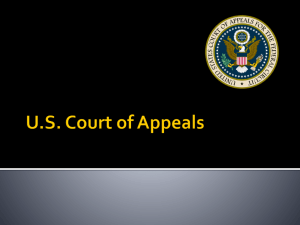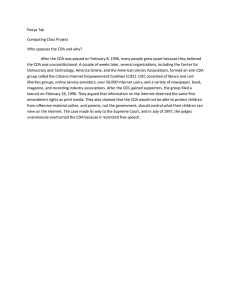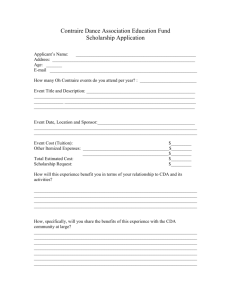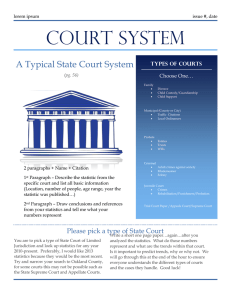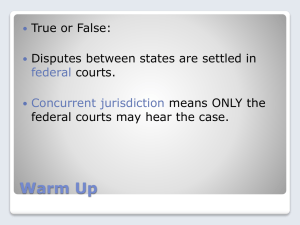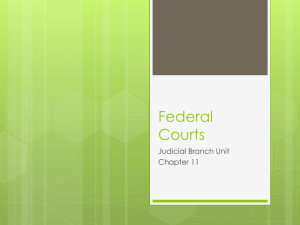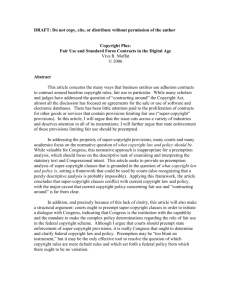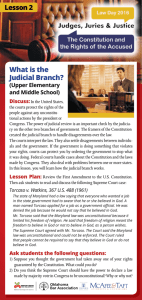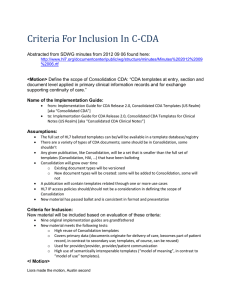b-law chapter 1 activity 3
advertisement
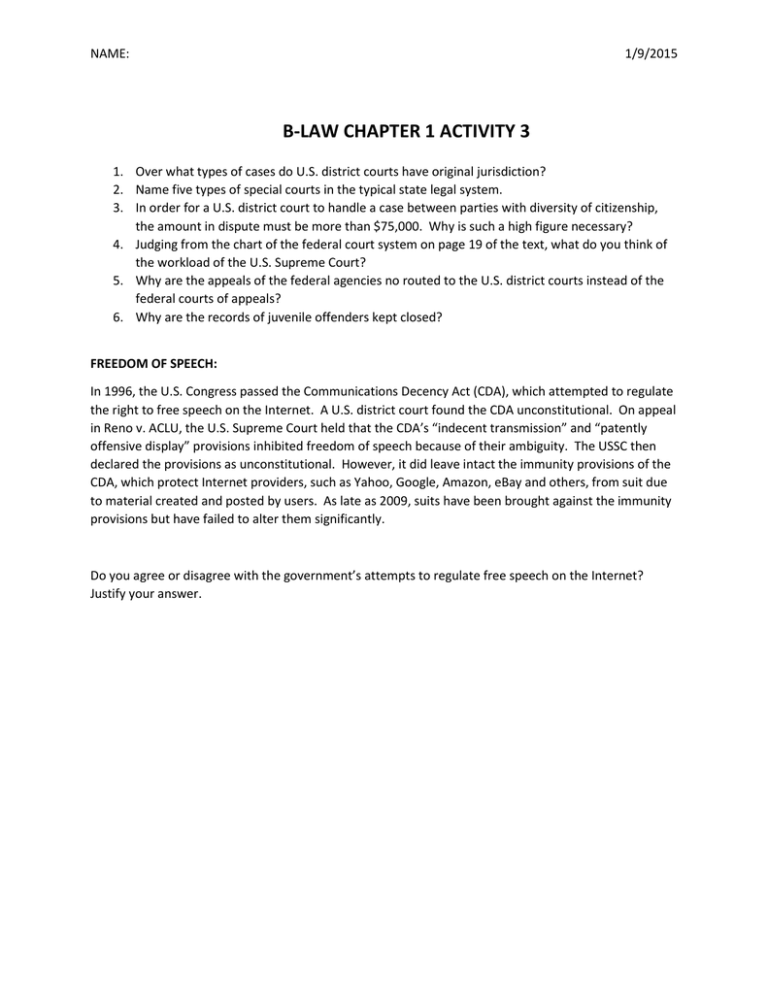
NAME: 1/9/2015 B-LAW CHAPTER 1 ACTIVITY 3 1. Over what types of cases do U.S. district courts have original jurisdiction? 2. Name five types of special courts in the typical state legal system. 3. In order for a U.S. district court to handle a case between parties with diversity of citizenship, the amount in dispute must be more than $75,000. Why is such a high figure necessary? 4. Judging from the chart of the federal court system on page 19 of the text, what do you think of the workload of the U.S. Supreme Court? 5. Why are the appeals of the federal agencies no routed to the U.S. district courts instead of the federal courts of appeals? 6. Why are the records of juvenile offenders kept closed? FREEDOM OF SPEECH: In 1996, the U.S. Congress passed the Communications Decency Act (CDA), which attempted to regulate the right to free speech on the Internet. A U.S. district court found the CDA unconstitutional. On appeal in Reno v. ACLU, the U.S. Supreme Court held that the CDA’s “indecent transmission” and “patently offensive display” provisions inhibited freedom of speech because of their ambiguity. The USSC then declared the provisions as unconstitutional. However, it did leave intact the immunity provisions of the CDA, which protect Internet providers, such as Yahoo, Google, Amazon, eBay and others, from suit due to material created and posted by users. As late as 2009, suits have been brought against the immunity provisions but have failed to alter them significantly. Do you agree or disagree with the government’s attempts to regulate free speech on the Internet? Justify your answer.
